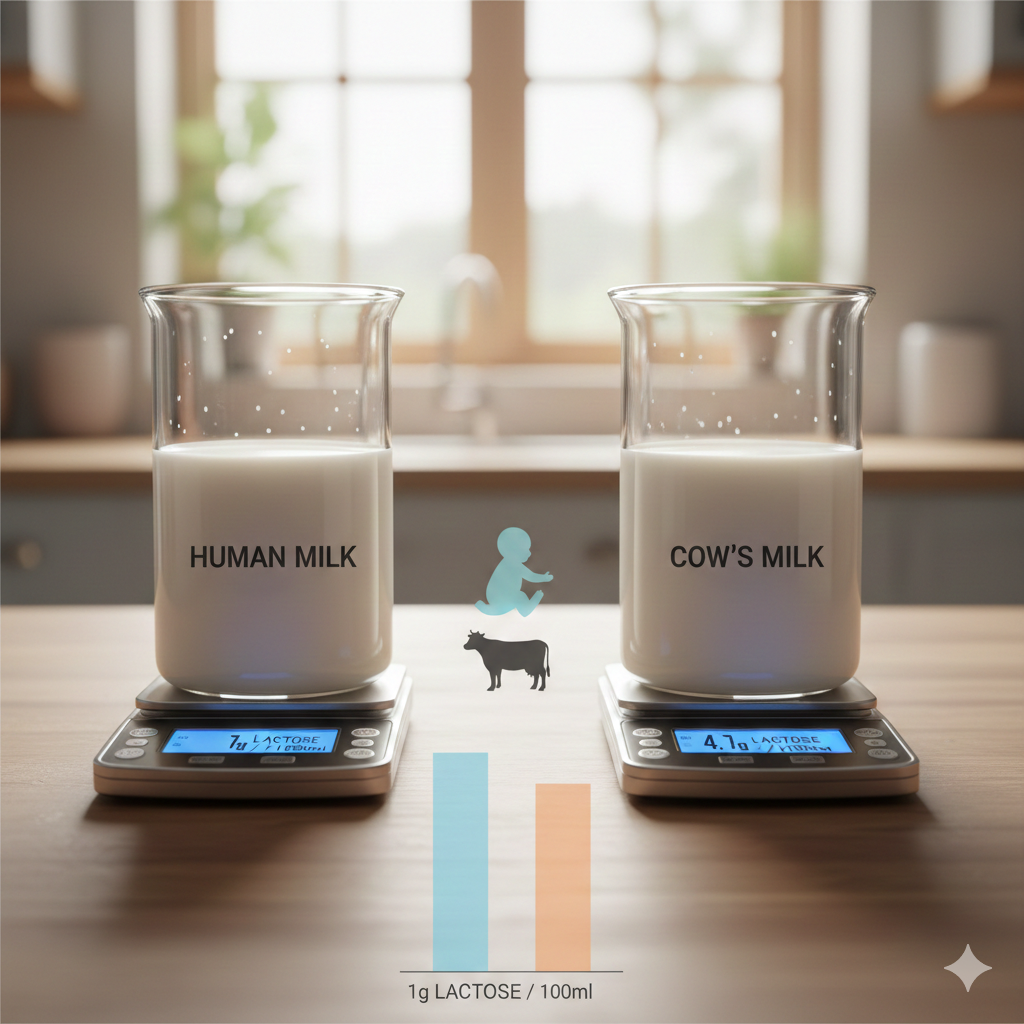Food Allergy Symptoms in Infants: Recognizing & Managing Common Infant Food Allergies
Are you aware of how food allergies might impact your infant's health? Many parents struggle with anxiety when introducing new foods, fearing potential allergic reactions.
Statistics from FARE (Food Allergy Research & Education) highlight that 6-8% of infants develop food allergies. Egg and milk allergies are the most common allergies in young infants, then, peanut, cashew, other tree nuts, and sesame make up common allergies. Soya, wheat and fish are less common in the UK.
Understanding food allergy symptoms and effective management strategies provides immense value and empowers parents to be proactive in allergy prevention and, eventually, treatment if needed.
Updated Food Allergy Guidelines
The European Academy of Allergy and Clinical Immunology (EAACI) has recently overhauled its clinical guidelines for IgE-mediated food allergy, with the latest updates on Diagnosis (2023) and Management (2024/2025).
These updates represent the first major revision in a decade and emphasise a more personalised, "holistic" approach rather than a strict avoidance. Prof du Toit was glad to be a senior author on this collaboration.
Recognizing Food Allergy Symptoms in Infants
Prompt identification of food allergy symptoms in infants is essential. IgE-mediated allergy symptoms usually surface within minutes to two hours after consuming an allergen e.g. hives, swelling, dislike of the food. Usually, but not always, more than one body system will be involved e.g. skin rash and a vomit.
Non-IgE symptoms are more delayed, such as blood in stool, gastrointestinal reactions, and skin flares.
Skin Reactions:
Hives or red, itchy bumps are common allergic reactions infants may display soon after ingesting allergenic foods.
Eczema flare-ups might worsen noticeably following allergen consumption, suggesting a possible food-related trigger that necessitates professional eczema treatment.
Active dislike, or aversion of the food and swelling around lips, face, tongue, or eyes indicates immediate allergic responses that warrant careful monitoring.
Digestive Issues:
Infants might experience abdominal paind and/or vomiting shortly after consuming problematic foods, indicating an adverse reaction requiring close observation.
Persistent diarrhoea following food introduction, often watery or mucous-filled, may signify allergy-related digestive disturbances, but as an isolated symptom, this will usually be of a non-IgE nature. The presence of blood in the stool may indicate a food-induced colitis, usually milk.
Symptoms resembling colic or visible stomach discomfort can occur in infants due to food allergies.
Respiratory Symptoms:
Wheezing or persistent coughing could develop during an allergic reaction; indeed, this will meet the criteria for anaphylaxis.
Uncontrolled asthma is a risk factor for more serious allergic reactions.
Nasal congestion, frequent sneezing, or a runny nose might also appear as part of an allergic response in infants.
Severe Reactions (Anaphylaxis):
Infants struggling to breathe or swallow urgently need immediate medical assistance, as these indicate life-threatening reactions.
Weakness, dizziness, fainting, or loss of consciousness are alarming symptoms that suggest severe allergic reactions or anaphylaxis.
Pale or bluish skin or lips are critical indicators of oxygen deprivation and necessitate immediate emergency care.
If severe allergic symptoms occur, seek emergency medical care immediately.
Common Food Allergies in Infants
Certain foods commonly trigger allergic responses in infants. Awareness of these prevalent allergens allows proactive dietary management to minimize potential reactions, helping ensure infants safely navigate dietary transitions while protecting their health and wellbeing from severe allergic incidents.
Cow's Milk:
Cow's milk allergy frequently affects infants, with exposure via formula or maternal consumption. It generally resolves naturally by early childhood.
2. Eggs:
Egg allergies predominantly relate to egg whites. Some infants may tolerate baked or thoroughly cooked eggs, which can reduce the severity of their reaction. Seek advice before trialling this yourself.
3. Peanuts:
Peanut allergies cause some of the most severe reactions. Introducing peanuts under medical supervision early in life might decrease the risk.
4. Tree Nuts:
Allergies to almonds, cashews, hazelnuts, or walnuts typically persist throughout a person's life, necessitating careful lifelong dietary avoidance measures.
5. Soy:
Soy allergies, sometimes linked to infant formulas, typically diminish by school age but require dietary vigilance in early childhood.
6. Wheat:
Wheat allergies can mimic gluten intolerance or celiac disease, but frequently resolve naturally as children mature beyond infancy.
7. Fish & Shellfish:
Although less common in infancy, fish and shellfish allergies can produce intense reactions and are generally lifelong concerns.
Consultation with a paediatric allergy specialist offers specialised guidance tailored to individual infant needs.
Immediate Actions for Food Allergy Reactions in Infants
When an allergic reaction occurs, rapid action is critical. First, immediately cease feeding the suspected allergen, and observe the infant carefully for symptom progression. Administer any prescribed antihistamines or epinephrine promptly according to medical guidance, ensuring your infant's safety while preparing for potential emergency intervention.
Stop Feeding Immediately:
Immediately stop providing the suspected allergenic food once symptoms present, minimizing further allergen exposure and associated risks.
Evaluate Symptoms:
Quickly assess your infant for respiratory difficulties, swelling, or significant behavioral changes, guiding further immediate intervention steps effectively.
Use Prescribed Medication:
Administer antihistamines or epinephrine auto-injectors (EpiPens) precisely as prescribed by healthcare providers, addressing allergic reactions swiftly and effectively.
Seek Emergency Help:
If your infant exhibits severe reactions like breathing difficulties, facial swelling, or signs of anaphylaxis, contact emergency services immediately for urgent assistance.
Maintain detailed records of symptoms and consumed foods, facilitating accurate diagnosis and informed medical intervention by allergy specialists.
Conclusion
Early detection and management of food allergy symptoms in infants are crucial for preventing severe reactions and safeguarding your child's health. With diligent observation, proactive preventive strategies, and prompt medical responses, parents can successfully navigate food allergies. For expert diagnosis, personalized guidance, and ongoing allergy management, consult pediatric specialists at London Allergy Consultants.
Frequently Asked Questions
-
Watch closely for symptoms like hives, vomiting, wheezing, or swelling shortly after feeding. Document any reactions and consult an allergist for a professional evaluation and testing.
-
Infants can develop food allergies as soon as they start eating solids, typically around 4 to 6 months old. Symptoms usually appear soon after exposure to allergenic foods.
-
The most common allergens include cow's milk, eggs, peanuts, tree nuts, soy, sesame, pulses, wheat, fish, and shellfish. Introducing these foods gradually under medical supervision will reduce risks.
-
Yes, many infants outgrow allergies to milk, eggs, soy, and wheat. However, allergies to peanuts, tree nuts, fish, and shellfish often persist into adulthood and require lifelong management.
-
Immediately discontinue the allergenic food, administer prescribed medications such as antihistamines or an EpiPen if instructed, and seek urgent medical care if breathing difficulties or swelling occur.
Worried About Allergies? Let’s Help You Get Answers
If your child is showing signs of a food, pollen, or skin allergy, early diagnosis is key. At London Allergy Consultants, our expert team provides trusted, evidence-based care tailored to your child’s needs. From testing to treatment plans, we guide you every step of the way. We are happy to assess babies (infants), toddlers, young children, adolescents and young adults with allergies.
London Allergy Consultants
London Allergy Consultants is a leading UK centre for diagnosing and treating food and airborne allergies in children and young people.









Benefits of pollen immunotherapy include modifying the disease process, leading to long-term tolerance; preventing allergic rhinitis from progressing to asthma; reducing new sensitisations to allergens; maintaining clinical efficacy after treatment discontinuation; and improving control of allergic symptoms while decreasing medication use.